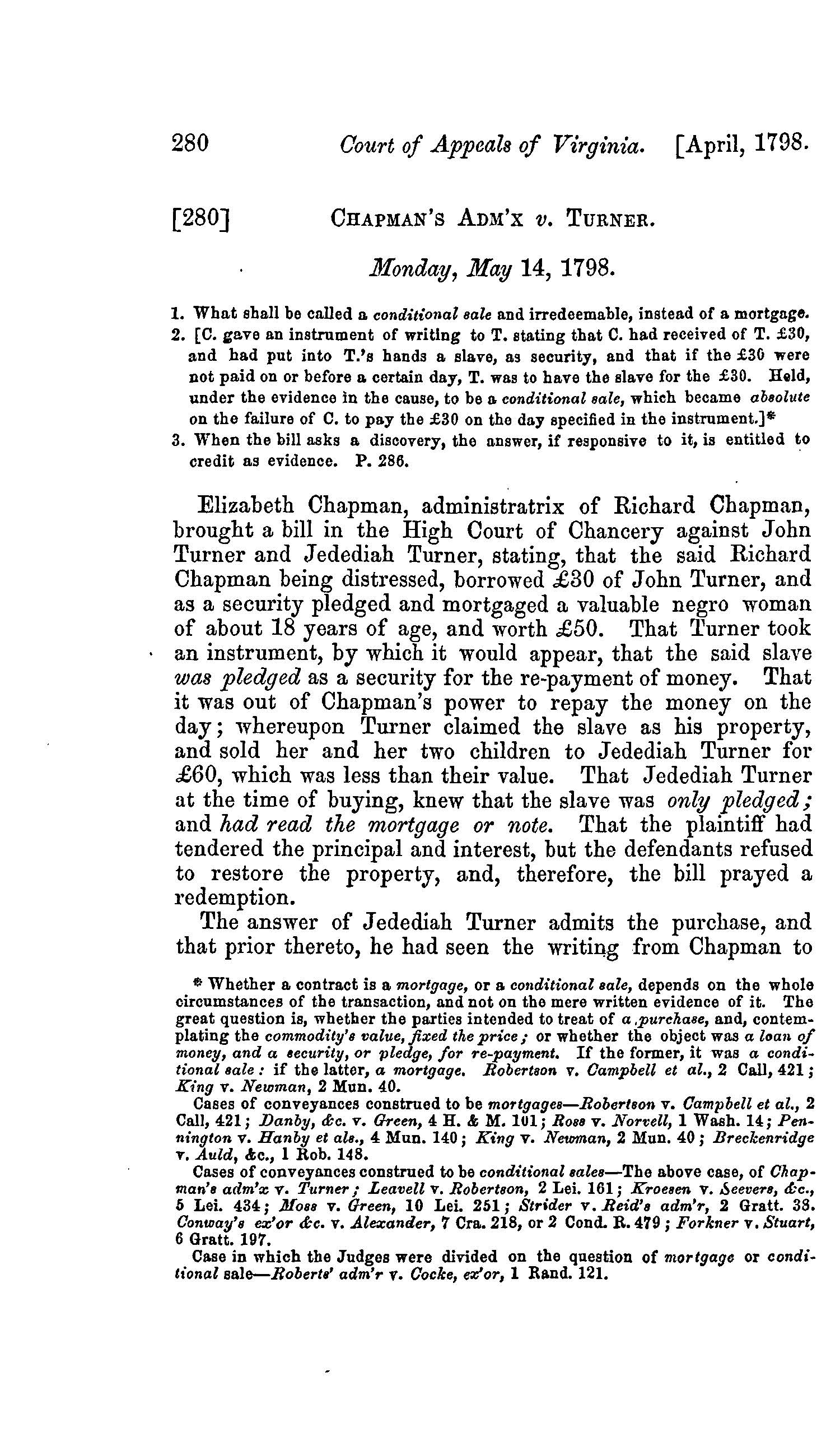Chapman's Adm'x v. Turner

In Chapman's Adm'x v. Turner, 5 Va. (1 Call) 280 (1798),[1] the court determined the difference between a conditional sale, which is irredeemable, and a mortgage.
Background
Richard Chapman was in distress and borrowed £30 from John Turner pledging an 18 year old female slave worth £50 as collateral. Turner also received a formal document to this effect. When the time came for Chapman to repay his debt, he did not have the money, so Turner took the slave and her two children. Turner then sold the slaves to Jedediah Turner for £60, which was less than their perceived value. At the time Jedediah bought the slaves, he knew that they were only pledged as collateral for a debt and he had read the mortgage regarding that debt. Even after Chapman had money to pay the principal debt with interest, Jedediah refused to return the slaves. This led to a suit praying the slaves be returned.
The Court's Decision
Chancellor Wythe dismissed the case with court costs. The Court of Appeals affirmed.
See also
References
- ↑ Daniel Call, Reports of Cases Argued and Adjudged in the Court of Appeals in Virginia, 3rd ed., ed. Lucian Minor (Richmond: A. Morris, 1854), 1:280.